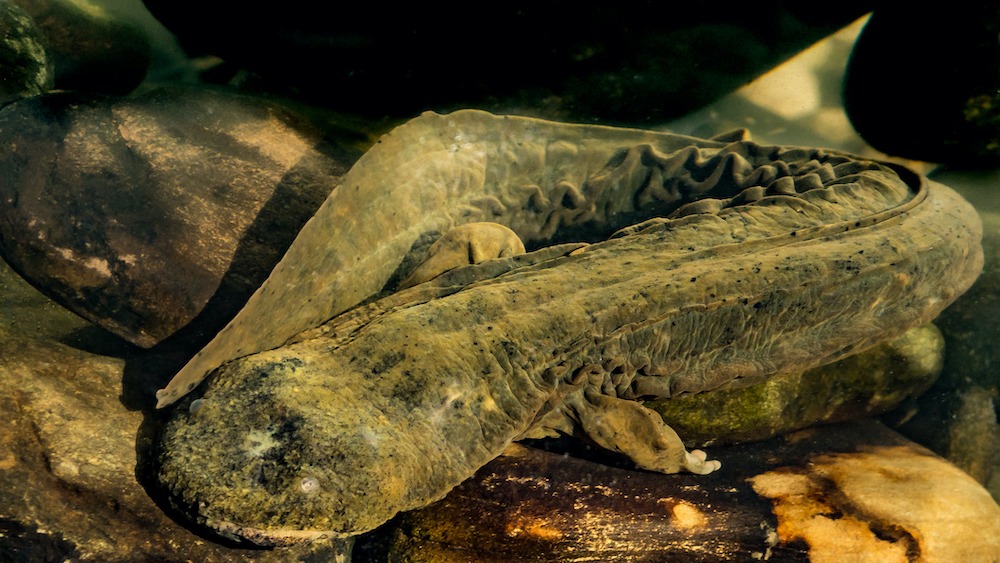
Baby hellbender salamanders don't stand a chance against their fathers who have gone rogue and started cannibalizing their offspring.
For the past eight years, scientists from Virginia Tech have been studying the behavior of hellbender salamanders (Cryptobranchus alleganiensis), a species of giant amphibians that inhabit the frigid waters of southwestern Virginia rivers and are considered the largest salamanders in North America, growing about 2 feet (0.69 meters) long and weighing up to 5 pounds (2.3 kilograms).
The researchers noticed that male salamanders were more prone to eating their young if they resided in areas affected by deforestation.
In fact, in the past 50 years, hellbender salamander numbers have decreased across the United States, and the researchers cited disease, poaching, climate change and habitat loss due to deforestation as possible factors leading to this cannibalistic behavior, The New York Times reported.
Related: World's oldest known case of cannibalism revealed in trilobite fossils
Typically, male salamanders are doting fathers that stick around for months after fertilizing the eggs to fend off possible predators, eating only around 14% of the offspring that have low chances for survival. However, in areas where deforestation is an issue, this tendency to chow down on their young tripled. Hopkins suspects that changes in water chemistry due to deforestation could be depleting the salamanders' food supply and thus causing this shift in behavior, according to The New York Times.
Infanticide has become so commonplace among these jumbo salamanders that the researchers worry that the practice could lead to the species' extinction.
"If you have rates of cannibalism this high, then that alone is enough to explain many of the population declines we've seen across the species range," William Hopkins, an ecologist at Virginia Tech and lead author of a new paper describing the research, told The New York Times.
Male hellbender salamanders aren't unique in their hankering to eat their young. Filial cannibalism is also common in other species, like cane toads and Baltic comb jellies.
The research by Hopkins and his colleagues will be published in a forthcoming issue of the journal The American Naturalist.







